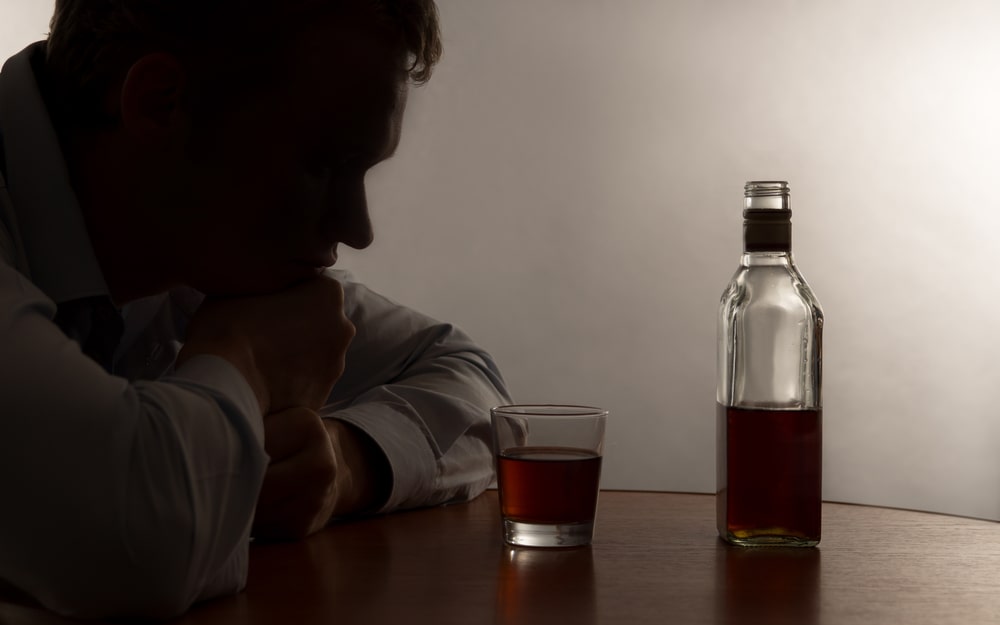The Centers for Disease Control and Prevention (CDC) explains that “ethyl alcohol, or ethanol, is an intoxicating ingredient found in beer, wine, and liquor.” Alcohol is a central nervous system depressant that works by slowing down vital functions in one’s body. The amount of alcohol consumed directly relates to its effects on one’s body. Each type of alcohol consists of a distinct amount of alcohol content. When referring to a certain number of drinks an individual consumes, it implies one standard drink, which is outlined by the National Institute on Alcohol Abuse and Alcoholism as:
- 12 ounces of regular beer (5% alcohol content)
- 8 – 9 ounces of malt liquor (7% alcohol content)
- 5 ounces of unfortified wine (12% alcohol content)
- 1.5 ounces of 80-proof hard liquor (40% alcohol content)
Excessive alcohol use, according to the Centers for Disease Control and Prevention (CDC) includes males drinking more than five alcoholic beverages within a two-hour period and females consuming more than four alcoholic drinks within a two-hour window. Habitual alcohol abuse can lead to severe short- and long-term consequences, when left untreated.
Dialectical Behavior Therapy
Dialectical behavior therapy (DBT) is a rigidly structured, comprehensive therapeutic approach that emphasizes the psychosocial aspects of treatment. It was developed by Marsha M. Linehan in the late 1980s as a means to more effectively treat chronically suicidal individuals diagnosed with borderline personality disorder (BPD). DBT combines standard cognitive behavioral therapy (CBT) techniques for emotional regulation and reality testing with psycho-educational modules and concepts derived from Buddhist meditative practice such as awareness, mindfulness, and attentiveness to current situations and emotional experiences. Dialectical behavior therapy has been and remains the gold standard method of treatment for individuals diagnosed with BPD struggling with thoughts of suicide and self-harm. Evidence has since shown it to be a successful treatment method for individuals with other mental health struggles, including alcohol abuse.
DBT is comprised of weekly one-on-one psychotherapy sessions, weekly group DBT skills training sessions, and as-needed phone coaching. The group DBT skills training sessions focus on teaching and practicing the four modules of DBT, which are: core mindfulness (focusing skills), distress tolerance (crisis survival skills), emotional regulation (de-escalation skills), and interpersonal effectiveness (social/ relationship skills). The safe environment of DBT group skills training sessions allow clients the ability to practice implementing skills learned in both group and individual therapy sessions. Individual therapy sessions provide a client and his or her clinician with the opportunity to co-create behavior plans that incorporate long- and short-term goals as well as delve deeper into and process the client’s life journey while also learning skills to improve self-worth, establish self-compassion, acceptance, and a positive self-identity. As-needed phone-coaching is used to provide access to additional support should crisis arise between individual and group sessions.
Treatment In Calabasas
Calabasas is a city in California. It is a well-known suburb of Los Angeles, located west of the San Fernando Valley and north of the Santa Monica Mountains. Over the past decade, the city of Calabasas has grown in its reputation for luxury as well as for privacy which makes it a hidden gem for residential living for society’s elite, and one of the most desirable destinations in Los Angeles County. It is also home to a plethora of highly qualified mental health clinicians providing an array of therapeutic services and treatment options.
The information above is provided for the use of informational purposes only. The above content is not to be substituted for professional advice, diagnosis, or treatment, as in no way is it intended as an attempt to practice medicine, give specific medical advice, including, without limitation, advice concerning the topic of mental health. As such, please do not use any material provided above to disregard professional advice or delay seeking treatment.


